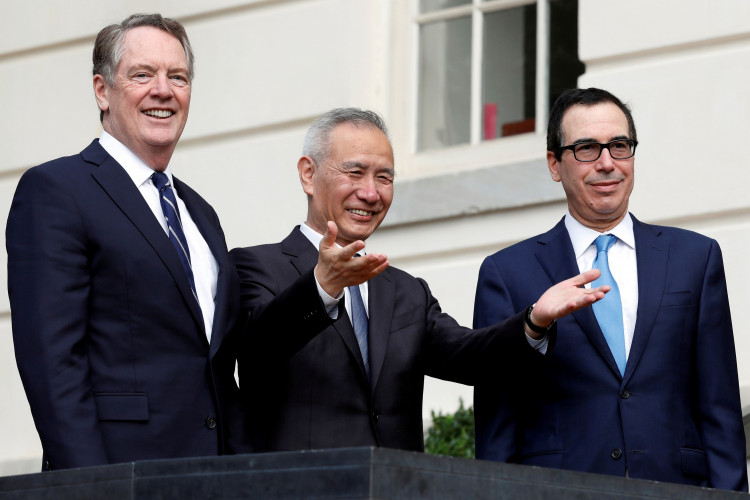Chinese Vice Premier Liu He is still expected to sign the initial "phase one" trade deal with the United States this week despite president Donald Trump last week saying he might sign this deal "shortly thereafter" January 15.
The confusing smoke signals from Trump come amidst news from China's Ministry of Commerce confirming Liu will be in Washington D.C. from Jan. 13 to1 5 for the formal signing ceremonies. The Trump administration, however, has not given an exact date for the signing.
Trump sounded uncertain as to when exactly the phase one deal he signed, he said in an interview with the ABC TV affiliate in Toledo, Ohio.
"We're going to be signing on January 15th -- I think it will be January 15th, but shortly thereafter, but I think January 15th -- a big deal with China," he said.
The White House has refused to clarify Trump's confusing statement. On December 31, Trump tweeted the phase one deal will be signed January 15. He claimed, but again without proof, China will buy $50 billion worth of U.S. farm products (including soybeans) under the phase one deal. U.S. and Chinese negotiators, however, haven't confirmed Trump's claims.
Trump's phase one claim seem like a "meretricious headline," said Adam Crisafulli, founder of Vital Knowledge, a market intelligence and analysis firm. Crisafulli said January 15 remains "the most likely date" for a signing but what really matters for stocks is the underlying text of the phase one deal. He said the wording is "shaping up to underwhelm."
Wall Street has long wanted to find out the specific details of the phase one deal but doubts the Trump administration will release these details to the public.
"It still isn't clear what Trump and Liu He will affix their signatures to," noted Crisafulli.
More worryingly, Wall Street doubts Trump is telling the truth when he brags China has agreed to buy up to $50 billion worth of U.S. agricultural produce.
Phase one is expected to slash tariffs and boost China's purchases of American farm produce, energy products and manufactured goods. It also pays some attention to intellectual property rights.
In addition, China and the U.S. have agreed to hold semiannual talks that will tackle disputes left untouched by the phase one deal, according to White House sources cited by media. These sources said the proposed semiannual talks would be distinct from the phase one negotiations. It will also revive the trade talks format proposed by China but rejected by the Trump administration. Liu and Treasury Secretary Steven Mnuchin will head the proposed semiannual talks.






